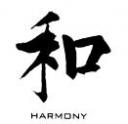 Depression is a healthy response to traumatic or overwhelming events. After a short period of “feeling down in the dumps” people typically recover and get on with their lives. For some however, feelings of loneliness, sadness, anxiety, irritability and hopelessness are unrelenting and can greatly impact their quality of life.
Depression is a healthy response to traumatic or overwhelming events. After a short period of “feeling down in the dumps” people typically recover and get on with their lives. For some however, feelings of loneliness, sadness, anxiety, irritability and hopelessness are unrelenting and can greatly impact their quality of life.
Medical breakthroughs resulting in new medications have helped countless people. However, while they can successfully address the neuro-chemical imbalances in the body, they do little to help the underlying causes. The potential side effects of these medications are numerous and can be debilitating. Some of the possible side effects include: insomnia, fatigue, anxiety, rashes and sexual dysfunction.
Not only is depression a psychological issue, for many people it manifests with physical symptoms such as insomnia, muscle pain, fatigue and weight gain as well. Oriental medical theory contends emotional stability is dependent on proper organ system functioning. Rather than thoughts and feelings being controlled only by the brain, the Asian medical perspective holds that each organ system governs different mental, emotional and physical processes. Depression can come in many forms and can manifest differently in different people. It can result from an imbalance in any organ system.
The Liver organ system is the seat of our motivation. The liver controls our ability to see. This applies to the health of your eyes, but also to the mental attribute of perspective. When liver function is hampered people can experience a lack of motivation, the inability to set goals or make decisions. This can leave them feeling irritable, anxious, depressed and apathetic.
The emotion associated with the Heart is joy. Simply feeling a lack of inspiration or joy in one’s life can be a manifestation of a heart imbalance. Physically this can manifest as palpitations.
The emotions grief and vulnerability fall into the Lung’s domain. This makes some intuitive sense when we consider that crying is a natural response to sadness. The lungs can suffer physically after a great loss such as the death of a loved one. Asthma, frequent colds and low immunity are lung symptoms that can be tied to grief.
When the Spleen organ system is not in balance people can feel an overwhelming sense of fatigue, apathy and melancholy. Their appetite and digestion may also be affected. Often these people suffer from problems with weight loss or weight gain, as the spleen is a digestive organ in Asian medicine.
Lastly, when a person looses the will to live the Kidney organ system is affected. They represent self knowledge and the will to survive. Thus when depression comes from a lack of kidney energy the situation is very severe. Typically in addition to drug therapy these patients are undergoing intensive counseling. Asthma and low back pain are physical symptoms associated with this form of depression.
Oriental medicine treatments aim to restore harmony to each organ system and thus bring a resolution to physical, emotional and spiritual imbalances. These goals are accomplished through diet and lifestyle modifications, herbal formulas, acupuncture therapy and nutritional supplementation. Some individuals benefit greatly from combining Western drug treatment and/or counseling with Oriental medicine techniques. After conducting a through intake and evaluation, I formulate a customized treatment plan that takes into account how depression is manifesting for each patient, in order to put them back on the road to health.
